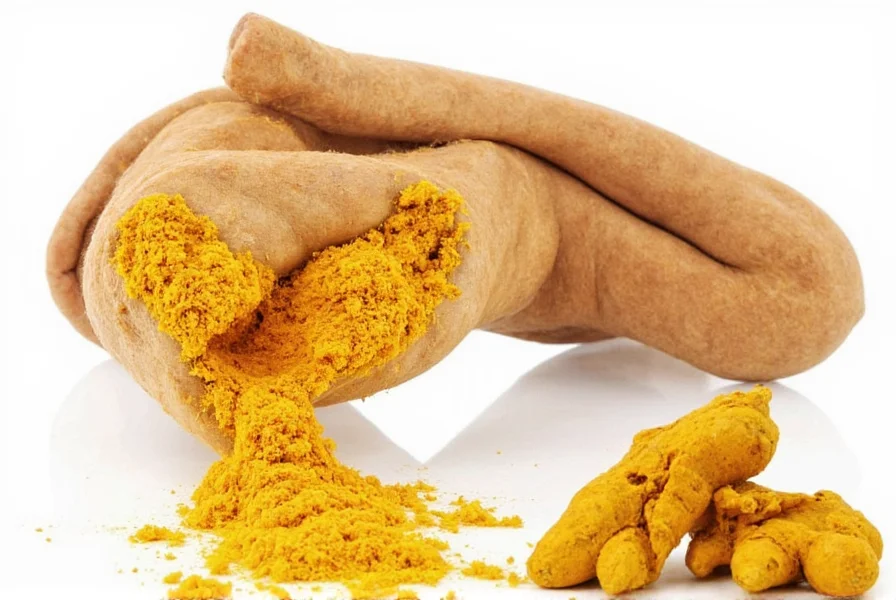Many pet owners wonder is turmeric safe for dogs and whether this golden spice offers genuine health benefits for their canine companions. As veterinary research continues to explore natural supplements, turmeric has gained attention for its potential therapeutic properties. Unlike human nutrition, canine physiology processes compounds differently, making it essential to understand both the benefits and limitations of turmeric for dogs.
The Science Behind Turmeric for Dogs
Turmeric contains curcumin, a polyphenol with documented anti-inflammatory and antioxidant properties. While most research has been conducted on humans, emerging veterinary studies suggest similar mechanisms may benefit dogs. The key challenge is bioavailability—curcumin is poorly absorbed on its own. When considering how to give turmeric to dogs, the addition of black pepper (containing piperine) and healthy fats significantly enhances absorption.
Evidence-Based Benefits of Turmeric for Dogs
Current veterinary literature indicates potential benefits in several areas:
- Joint health support: Multiple studies show reduced inflammation markers in dogs with osteoarthritis
- Digestive support: Turmeric may help regulate digestive enzymes and reduce gut inflammation
- Antioxidant protection: Helps combat oxidative stress that contributes to aging and disease
- Skin health: May support healthy skin when used topically or internally
Research published in the Journal of Veterinary Pharmacology and Therapeutics demonstrated that dogs receiving curcumin supplements showed significant improvement in mobility scores compared to placebo groups. However, the study emphasized that results varied based on formulation and dosage.
Safety Considerations and Potential Risks
Understanding side effects of turmeric in dogs is crucial for responsible supplementation. While generally safe at appropriate doses, potential issues include:
| Condition | Concern | Recommendation |
|---|---|---|
| Digestive sensitivity | Vomiting, diarrhea | Start with minimal doses, increase gradually |
| Blood thinning | Increased bleeding risk | Avoid before surgery or with anticoagulant medications |
| Gallbladder issues | May stimulate bile production | Contraindicated for dogs with gallstones |
| Diabetes management | May affect blood sugar | Monitor closely with veterinary guidance |
Proper Turmeric Dosage for Dogs
Determining the correct turmeric dosage for dogs requires careful consideration. Veterinarians typically recommend:
- 1/8 to 1/4 teaspoon of turmeric powder per 10 pounds of body weight
- Maximum of 1 teaspoon for large dogs
- Always mixed with healthy fat (coconut oil, fish oil) and black pepper
- Administered with food to prevent stomach upset
For example, a 50-pound dog might receive 1/2 teaspoon of turmeric mixed with 1 teaspoon of coconut oil and a pinch of black pepper. However, these are general guidelines—your veterinarian should determine the appropriate dose based on your dog's specific health needs.

Choosing Quality Turmeric Products
Not all turmeric supplements are created equal. When selecting products for your dog, consider:
- Standardized curcumin content: Look for products specifying curcumin percentage
- Enhanced absorption: Formulations with piperine or phospholipids improve bioavailability
- Purity: Third-party tested for contaminants and heavy metals
- Dog-specific formulations: Products designed for canine metabolism
The question can dogs have turmeric and coconut oil has a positive answer—this combination actually enhances absorption. The fat in coconut oil helps dissolve curcumin, while the medium-chain triglycerides provide additional health benefits.
When to Avoid Turmeric for Dogs
Certain health conditions warrant avoiding turmeric or using it only under veterinary supervision:
- Dogs with bleeding disorders or scheduled for surgery
- Dogs taking non-steroidal anti-inflammatory drugs (NSAIDs)
- Dogs with gallbladder disease
- Pregnant or nursing dogs
- Dogs with iron deficiency
Always disclose all supplements to your veterinarian, as turmeric may interact with certain medications including blood thinners, diabetes medications, and chemotherapy drugs.
Practical Administration Tips
Successfully incorporating turmeric into your dog's diet requires proper technique:
- Start with very small amounts to assess tolerance
- Mix with healthy fats like coconut oil or fish oil
- Add a pinch of black pepper to enhance absorption
- Combine with food rather than administering alone
- Monitor for any adverse reactions during the first week
- Be consistent—benefits typically appear after several weeks
For dogs resistant to the taste, consider mixing turmeric into pumpkin puree or bone broth. Some pet owners create turmeric golden paste for dogs by simmering turmeric powder with water, coconut oil, and black pepper to create an easily administered paste.
Consult Your Veterinarian First
Before adding turmeric or any supplement to your dog's regimen, consult your veterinarian. They can help determine if turmeric is appropriate based on your dog's specific health conditions, current medications, and nutritional needs. Remember that supplements like turmeric should complement—not replace—conventional veterinary care for serious health conditions.
Frequently Asked Questions
Can I give my dog turmeric every day?
Yes, but only in appropriate doses determined by your veterinarian. Daily administration is common for chronic conditions like arthritis, but the dose must be carefully calculated based on your dog's weight and health status. Excessive daily use can cause gastrointestinal issues.
How long does it take for turmeric to work in dogs?
Most dog owners report noticing improvements in mobility and comfort after 4-8 weeks of consistent use. The anti-inflammatory effects build gradually, so patience is required. Some dogs may show subtle improvements within 2-3 weeks, while others may take longer depending on their condition and the formulation used.
What happens if my dog eats too much turmeric?
Excessive turmeric can cause gastrointestinal upset including vomiting, diarrhea, and loss of appetite. In severe cases, it may lead to dehydration or interfere with blood clotting. If your dog consumes a large amount accidentally, contact your veterinarian immediately. Always store turmeric supplements securely away from pets.
Is turmeric good for dogs with cancer?
While some preliminary research suggests curcumin may have anti-cancer properties, turmeric is not a cancer treatment for dogs. It may be used as a complementary supplement under veterinary supervision to potentially reduce inflammation and improve quality of life, but should never replace conventional cancer treatments prescribed by a veterinary oncologist.











 浙公网安备
33010002000092号
浙公网安备
33010002000092号 浙B2-20120091-4
浙B2-20120091-4